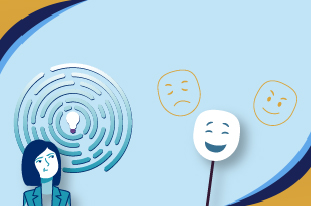Like traditions, hair color, features, and some long followed secret recipes are passed down through the families, individuals can also inherit generational trauma. Generational trauma, also widely known as intergenerational and transgenerational trauma, is a vicious cycle of trauma that is passed on to the next generations.
Generational trauma is often passed on via environment, biological, psychological, and lastly, social means such as some proven evidence suggests that intergenerational trauma can even manifest on an individual while being in the uterus. More evidence suggests that when a fetus is exposed to chemicals of maternal stress it can negatively affect the future development of the child. However, more work needs to be done in this area to have a better knowledge about generational trauma. Read on if you desire to explore what is generational trauma, the ways of breaking generational trauma, generational trauma in families, how to heal generational trauma, generational trauma examples, what are the common generational trauma patterns, ways of healing generational trauma, and how to stop generational trauma.
What Is A Generational Trauma?
Trauma is something that everyone at least once in their lives experience. Once a person faces a certain type of trauma they will also face some adverse physical and emotional results. Some of the commonly experienced factors are war, generational abuse and trauma, discrimination, racism, and natural disasters.

Generational family trauma is a type of trauma that is passed on to the upcoming generations and so on. It usually starts when a large group goes through a traumatic event that leads to financial, cultural, and family issues. As a result, considering it as a response, such individuals belonging to the suffering groups develop physical and psychological signs.
Individuals experiencing trauma can also manifest signs of other health conditions such as:
- Cardiac Issues
- Post-traumatic stress disorder
- Depression
- Anxiety
Moreover, the generations of such groups inherit trauma and the above mentioned health issues via factors like extreme prejudice and discrimination.
Read More: Understanding Trauma Bond Withdrawal Symptoms: Moving on to building healthy relationships
Instances Of Generational Trauma
History is full of examples of generational trauma of groups who went through generational trauma such as black Americans, holocaust survivors, and indigenous communities, and many more.
-
Black Americans:
There is an article that was published in 2020 focusing on epigenetic changes because of chronic stress and deficiency in nutrients of black people living in America during the times of slavery in the United states. The author of this article came to the findings that those environmental changes led black Americans to struggle with poor physical and mental health.
-
Holocaust Survivors:
A Canadian psychiatrist in 1966 named Vivian M.Rakoff and his colleagues are considered to be the first to discover the concept of generational trauma. The research team recorded a high rate of psychological distress among children of individuals who have survived the Holocaust.
A survey performed in 2017 on 190 adult children of Holocaust survivors found out that almost 18 percent reported that they felt anxious i.e, generalized anxiety disorder (GAD), and 14 percent showed signs of depression, while 7 percent reported PTSD.
-
Indigenous Communities
Such communities have experienced generational trauma due to loss of culture, population, or land. Trauma lingers on due to the discrimination and prejudice against indigenous communities. In one of the studies published in 2019, some researchers were able to find out that 15 percent of indigenous people were not consulting a mental health professional for psychiatric support due to discrimination in healthcare settings. As an outcome, little evidence suggests that indigenous communities are prone to have poor and unstable mental as well as physical health due to the ongoing generational trauma.
Identifiers Of Generational Trauma
Based on the diagnosed cases, the common signs and symptoms of generational trauma involve:
- Diminished self worth
- Anxiety
- Signs of depersonalization
- Depression
- Absence of emotions
- Lack of social skills
- PTSD signs due to the trauma
Several researches show that generational trauma can significantly affect the immune system. A study as well was published in 2021 emphasizing on the genes linked with the immunity system among children of holocaust survivors. This research was successful to find out that certain genes were less likely to be active in such people. Therefore, as a result the participants showed low innate immunity.
Read More: Understanding The Fawn Trauma Response: What It Is And How It Impacts Us?
Causes Of Generational Trauma
There is no single cause leading to the onset of signs of generational trauma. However, the most common one known is when a group collectively experiences an intense and life changing horrific event such as abuse, discrimination, and natural disasters, racism, or even war. Such drastic events can lead to anxiety, PTSD, and depression among people who are directly affected. Then this cycle continues and is passed onto the next generations and breaking the cycle of generational trauma becomes hard.
Another common way that leads a trauma to pass on the next generations is through epigenetic changes. The theory is primarily that trauma changes how your genes normally function and then those changes are passed on to the offsprings.
However, it is still complex to pinpoint about what exactly becomes the reason that the genes express themselves in a different way in people with family members having trauma. Other than this, there are more ways that promote the signs of generational trauma to manifest in a person such as prejudice and discrimination.
Impact Of Intergenerational Trauma
Intergenerational trauma has its effects on the individual and families as well. However, generational trauma healing is possible. This involves:
-
Impact on family:
Intergenerational trauma can be different for different families. For some intergenerational trauma can be a cause of drifting away and for some it can make them become closer.
They are several ways in which intergenerational trauma can impact a family such as:
- Disconnection
- Distance
- Denial
- Detachment
- Loss of self esteem
- Bonding linked with trauma
- Neglect
- Abuse
- Violence
-
Impact on individuals
To better understand this concept, let’s take an example of a person whose great grandparents, aunts, uncles, and some other relatives were killed in an holocaust.
When this same person grew he/she was being told by the family members about horror gas and then she developed a fear and avoided saunas. So, a person usually tends to adopt a thinking that their family members share with them oftenly.
-
Negative Impacts
Trauma and stress are the major factors that alleviates the chances of chronic pain, some illnesses, and exhibit behavior that affect a person’s wellbeing, such as:
- Anxiety
- MDD
- Specific Phobia
- Acute Stress
- SAD
- ADHD
- GAD
- Adjustment Disorder
- Psychosis
- Poor sleep cycle
- Cardiac issues
- Substance abuse
- Diabetes
- Depression
- Suicidal ideation
- Shame
- Reduced self esteem
- Dissociation
- Intrusive thoughts
- Interpersonal relationship issues
Risk Factors Of Generational Trauma
Every person is susceptible to developing generational trauma. Some of the events are resulted due to generational trauma such as:
- Racism
- War
- Sexual abuse
- Natural Disaster
- Discrimination
- Adverse childhood experiences
There are certain groups who are sensitive to experience generational trauma due to their past histories. Specifically, ethnic and racial minorities are at a higher risk of generational trauma than white people.
Read More: Trauma Brain Vs Normal Brain: How Trauma Affects The Way We Live
The Diagnosis Of Generational Trauma
Till date there is no specific diagnosis of generational trauma, as per the diagnostic and statistical manual of mental disorder (5th edition). The DSM-5 is the guide for mental health experts to diagnose various mental health conditions.
As we are aware that trauma has its root via stress, anxiety, and even fight or flight, and other intensified alert systems in a human brain and body. However, intergenerational trauma can be manifested via the learned beliefs and behaviors, or patterns that can be rooted in the next generations.
However, there is no particular test to diagnose generational trauma, but a mental health professional uses mental health screening to check if a person is suffering from a mental illness. The diagnosis becomes a bit easier if a person has a family history of mental health illnesses. The professional psychiatric screening involves a set of certain questions about the sufferer’s eating habits, feelings, mood, sleeping routine, and other behaviors.
If you have visited a mental health professional then the next step will always be the diagnosis. However, if you have consulted your condition with a healthcare provider then they will refer you to someone expert in treating mental health conditions.
Read More: Understanding Relational Trauma
How To Break Generational Trauma?
There are certain widely used treatment methods used to overcome the adverse signs of generational trauma. But, before reviewing these available treatment methods one must know that recovering from generational trauma includes:
- Acceptance of trauma, the impact, and how a person can treat it.
- Pinpointing the symptoms that can be linked to the trauma
- Avoiding surroundings that can make it hard to recover from the trauma
Psychotherapy, or commonly talk therapy is the first approach that aids in minimizing the generational trauma. Talk therapy supports you in understanding the trauma and how it can impact your life.
Another major issue linked with accessing mental healthcare is that many ethnic minorities remain deprived from attaining treatment for breaking free from generational trauma. Therefore, several people remain undiagnosed and unable to receive the right treatment for this mental illness.
Moreover, family system therapy is also effective in treating family generational trauma. The primary focus of such therapy is to enable the families to understand how they can change the ongoing generational trauma and prevent it from passing to the next generations. Also, the therapist works with each family member to ensure they understand how behavior of every single member aids in promoting the generational trauma.
A 2020 research study suggests that psychoanalysis can also aid in limiting the transference of intergenerational trauma in people who have faced it and their next generations.
Read More: The Hidden Mental Scars of Childhood Trauma in Adults
Wrapping Up!
Trauma can be distressing, specifically it has been experienced from generations. Generational trauma cycle is seen to pass from generation to generation. It can be triggered in holocaust survivors, racially discriminated people, and in indigenous communities as well. To break free from it requires a proper treatment such as psychotherapy, psychoanalysis, and family therapy works best in such cases. Stopping generational trauma is essential for living a happy family life. So, if you think you have been through a certain type of generational trauma and you cannot manage it now, then feel free to contact telehealth services of Orange Coast Psychiatry today!


















